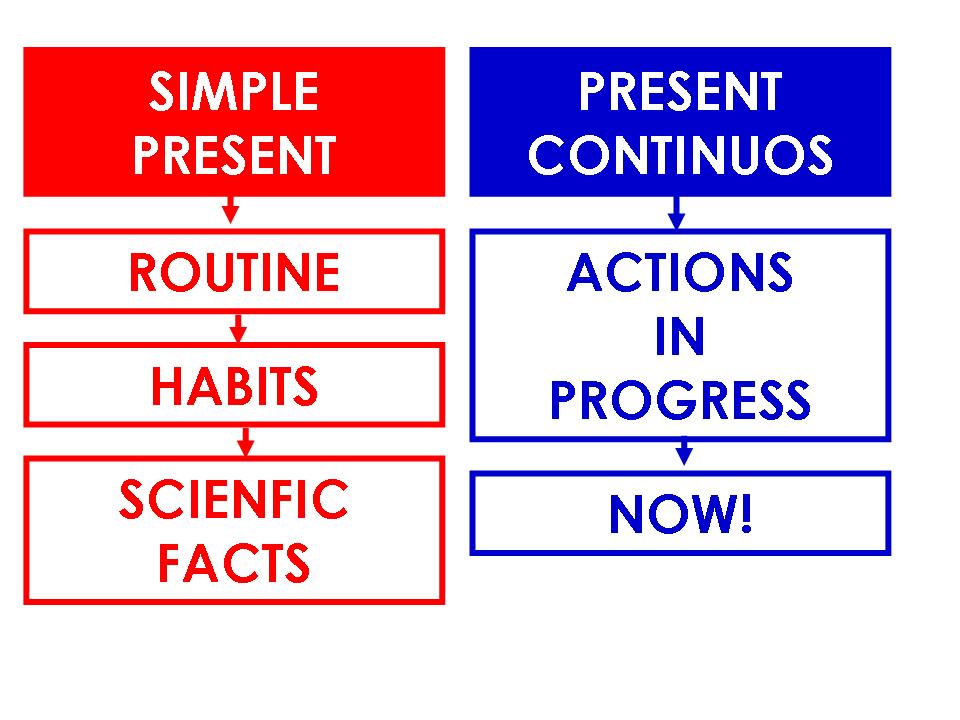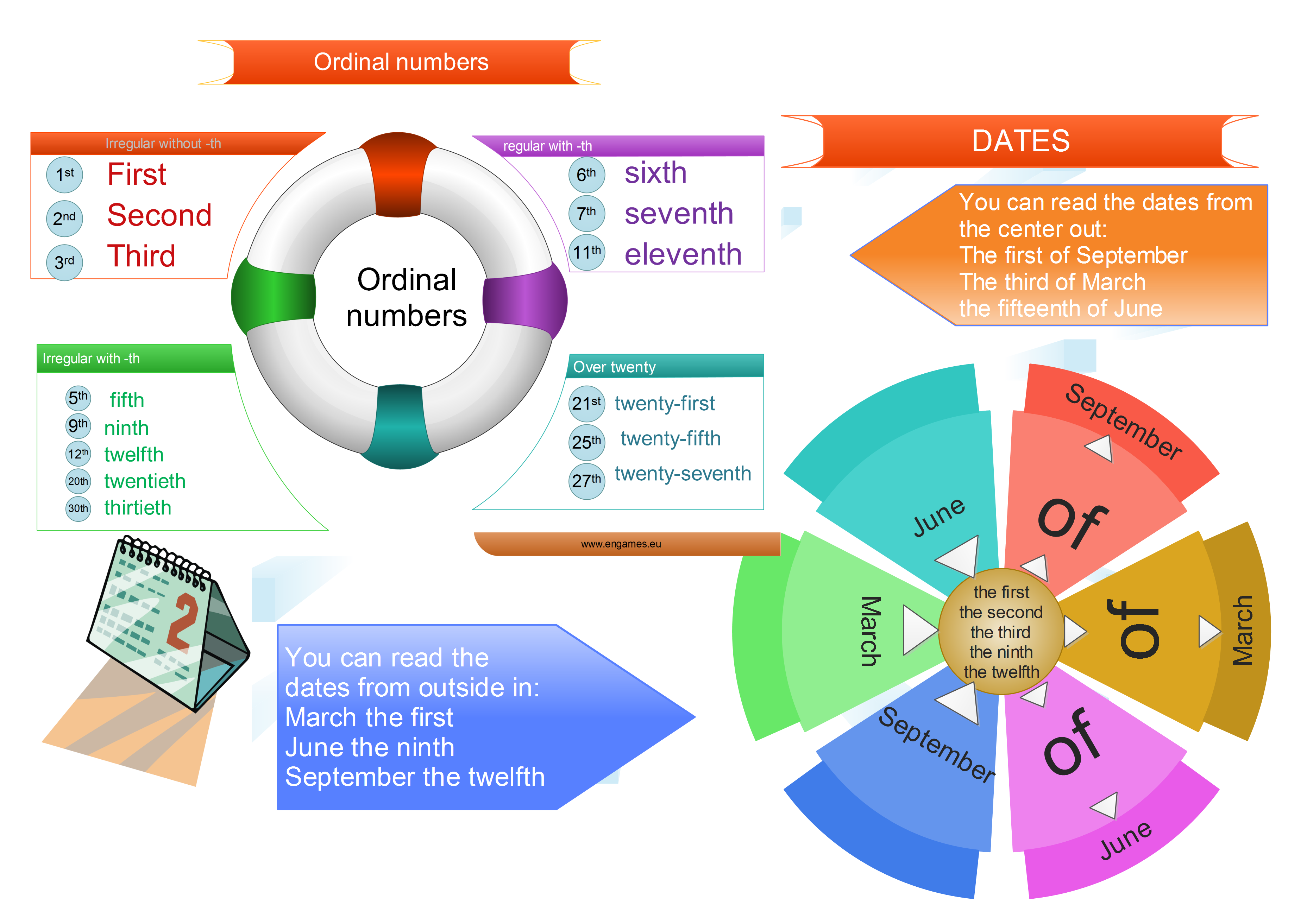
Form
| Simple Present | Present Progressive |
|---|
infinitive
(3rd person singular: infinitive + 's')
I speak
you speak
he / she / it speaks
we speak
they speak
|
form of 'be' and verb + ing
I am speaking
you are speaking
he / she / it is speaking
we are speaking
they are speaking
|
| Exceptions |
Exceptions when adding 's' :
- For can, may, might, must, do not add s.
Example: he can, she may, it must
- After o, ch, sh or s, add es.
Example: do - he does, wash - she washes
- After a consonant, the final consonant ybecomes ie. (but: not after a vowel)
Example: worry - he worries
but: play - he plays
| Exceptions when adding 'ing' :
|
Use
In general or right now?
Do you want to express that something happens in general or that something is happening right now?
| Simple Present | Present Progressive |
|---|
in general (regularly, often, never)
Colin plays football every Tuesday.
present actions happening one after another
First Colin plays football, then he watches TV.
|
right now
Look! Colin is playing football now.
also for several actions happening at the same time
Colin is playing football and Anne is watching.
|
| Signal words |
- always
- every ...
- often
- normally
- usually
- sometimes
- seldom
- never
- first
- then
|
- at the moment
- at this moment
- today
- now
- right now
- Listen!
- Look!
|
Note: The following verbs are usually only used in Simple Present:
be, have, hear, know, like, love, see, smell, think, want
|
Timetable / Schedule or arrangement?
Do you want to express that something is arranged for the near future? Or do you refer to a time set by a timetable or schedule?
| Simple Present | Present Progressive |
|---|
action set by a timetable or schedule
The film starts at 8 pm.
| arrangement for the near future
I am going to the cinema tonight.
|
Daily routine or just for a limited period of time?
Do you want to talk about a daily routine? Or do you want to emphasis that something is only going on for a limited (rather short) period of time?
| Simple Present | Present Progressive |
|---|
daily routine
Bob works in a restaurant.
| only for a limited period of time (does not have to happen directly at the moment of speaking)
Jenny is working in a restaurant this week.
|
Certain Verbs
The following verbs are usually only used in Simple Present (not in the progressive form).
- state: be, cost, fit, mean, suit
Example: We are on holiday.
- possession: belong, have
Example: Sam has a cat.
- senses: feel, hear, see, smell, taste, touch
Example: He feels the cold.
- feelings: hate, hope, like, love, prefer, regret, want, wish
Example: Jane loves pizza.
- brain work: believe, know, think, understand
Example: I believe you.
- Introductory clauses for direct speech: answer, ask, reply, say
Example: “I am watching TV,“ he says.
Click here to do some exercises.







